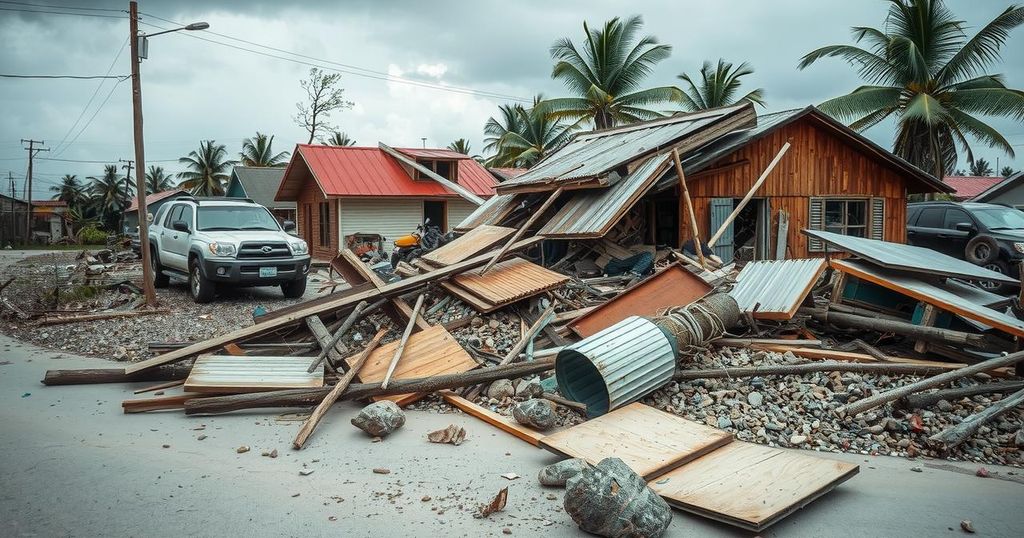World news
AFRICA, CABO DELGADO, CHI, CHIDO, EMERGENCY RESPONSE, EUROPEAN UNION, HURRICANE BERYL, LUISA MEQUE, MAPUTO, ME, MEQUE, MOZAMBICAN, MOZAMBIQUE, NAMPULA, NATIONAL INSTITUTE FOR DISASTER RISK MANAGEMENT AND REDUCTION, NATIONAL INSTITUTE OF RISK AND DISASTER MANAGEMENT, NATURAL DISASTER, NATURAL DISASTERS, NIASSA, RFI, TETE
Fatima Alavi
0 Comments
Cyclone Chido Devastates Mozambique, Resulting in 34 Fatalities and Displacement
Cyclone Chido has caused at least 34 deaths and widespread destruction in Mozambique, particularly affecting the provinces of Nampula, Tete, and Niassa. Thousands have been displaced amid severe infrastructure damage. As the cyclone transitions into a severe storm, authorities emphasize the need for precautionary measures and community awareness. The humanitarian response is critical, especially for the vulnerable populations at risk.
Cyclone Chido has tragically resulted in at least 34 fatalities and extensive devastation throughout Mozambique, as announced by the National Institute of Risk and Disaster Management. The cyclone made landfall earlier this week, impacting numerous provinces, particularly Nampula, where the first casualties were reported. Thousands have been displaced, with significant destruction to infrastructure, including homes and roads.
The destruction began in Cabo Delgado province, where 28 fatalities were recorded, followed by additional losses in Nampula and Niassa. Amid ongoing adverse weather conditions, authorities continue to assess the extent of the damages and respond to the urgent need for relief. The President of the National Institute for Disaster Risk Management and Reduction, Luisa Meque, has called for heightened awareness and preparedness as the cyclone transitions into a severe storm.
In total, nearly 175,000 people have been impacted, with 319 injuries reported. The cyclone’s maximum winds reached approximately 260 kilometers per hour, creating hazardous conditions that necessitate precautionary measures within communities. UNICEF and other organizations have highlighted the critical situation for children and families, emphasizing the risks of homelessness, separation, and limited access to essential services.
Cyclone Chido’s arrival in Mozambique marks a significant humanitarian crisis, exacerbating existing vulnerabilities in a region frequently subjected to tropical storms. The affected areas, particularly in the northern provinces, are known for their susceptibility to cyclones and the resultant infrastructural damage. The recent storm, following the destructive path through the Indian Ocean island of Mayotte, has intensified relief efforts across the region. As climate change contributes to the increasing frequency and intensity of such natural disasters, the need for effective emergency response systems becomes paramount.
In summary, Cyclone Chido has created a catastrophic situation in Mozambique, resulting in loss of life and widespread devastation. With calls for aid and increased awareness, local authorities and international organizations are mobilizing to provide support to affected communities. The challenges faced by vulnerable populations, particularly children, underscore the urgent need for comprehensive disaster risk management and humanitarian assistance in the aftermath of such natural calamities.
Original Source: www.rfi.fr




Post Comment